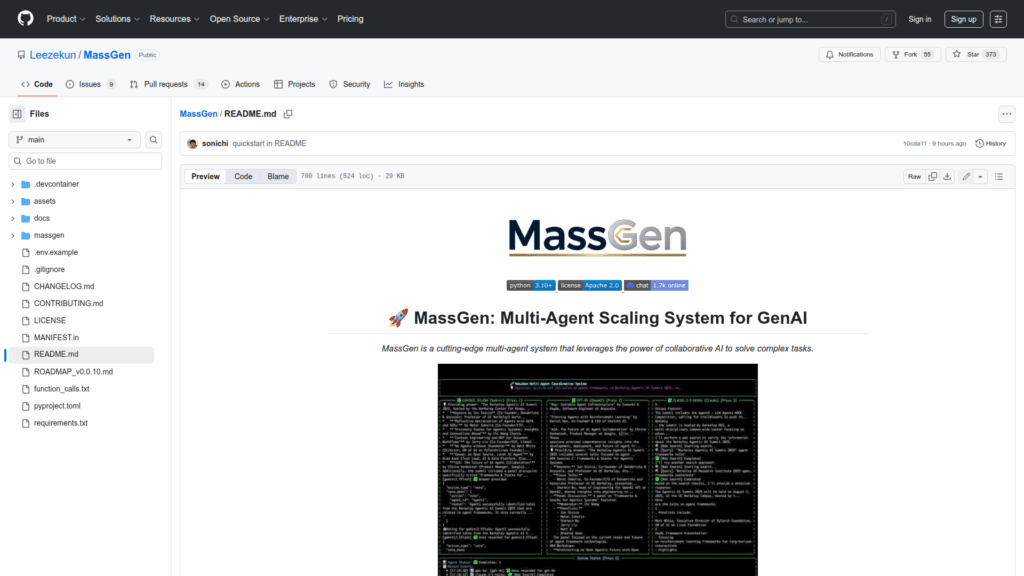MassGen
Basic Information
MassGen is an open-source multi-agent orchestration system for GenAI that coordinates multiple large language model agents to solve complex tasks through parallel, iterative collaboration. It provides an orchestrator, a shared collaboration hub, and a notification system so diverse agents can run in parallel, share intermediate work, learn from each other, and converge on higher-quality results than single models. The repository includes a CLI, YAML/JSON configuration format for single or multi-agent teams, interactive multi-turn mode, real-time terminal displays, comprehensive logging, and support for both API-based providers and local inference via LM Studio. It is intended for researchers and developers who want to experiment with or deploy multi-model teams using providers such as Anthropic Claude, Google Gemini, xAI Grok, OpenAI GPT series, Cerebras, Z AI and various open-weight models, and to extend or instrument agent collaboration patterns.








